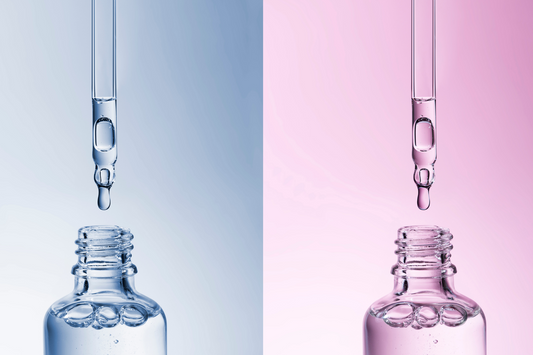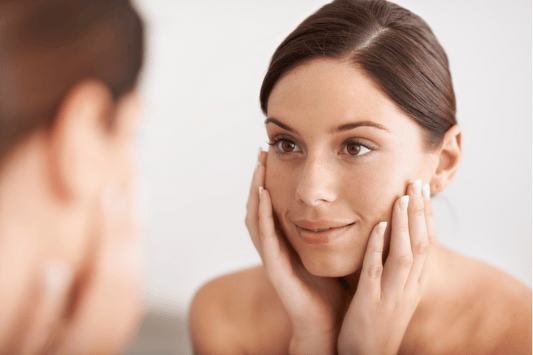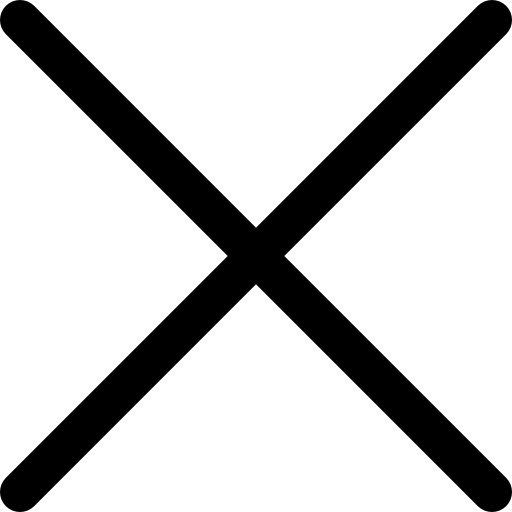It can be shocking to start experiencing hair loss at any age, but thankfully there’s a lot you can do to support your hair’s health and limit any additional thinning. At Revela, we understand it can feel like an uphill battle managing hair loss, but we’re here to remind you that you aren’t alone.
For better or worse, hair loss is easy to notice and detect. Early intervention with the right products and dietary habits, however, can slow hair loss and stop it in its tracks. One of those key ingredients to keep an eye on in your diet as you begin your hair regrowth journey is zinc.
In this post, we’ll explore the benefits of zinc in combatting hair loss. We’ll also take a look at some of the primary causes of female pattern baldness, as well as provide a few helpful tips for keeping your hair nourished and healthy.
What Causes Hair Loss in Women?
Hair loss occurs due to a handful of different factors, from aging and everyday stress to medication and illness. In more extreme cases, an autoimmune disorder known as alopecia areata can cause your body to attack your own hair follicles. And although hair loss can begin at any time, onset becomes more common the older we get.
In women over 50, the most common cause of hair loss is androgenic alopecia, commonly known as male or female pattern baldness. Though the hair loss from androgenic alopecia doesn’t result in complete baldness at first, it leads to noticeable thinning in predictable areas—in women, this means around the primary divide where you part your hair.
Androgenic alopecia affects roughly a quarter of women over 50, but it can affect younger people, too. Despite its prevalence, it’s far from the only type of hair loss you might experience.
Other conditions include telogen effluvium—increased shedding when external factors push more of your hair into its natural resting phase than usual—and the aforementioned alopecia areata. Both conditions can be exacerbated by high levels of stress, but fortunately, both conditions can be mitigated once the stress subsides. While stress can increase the hair loss from androgenic alopecia, however, an intervention-based treatment is required to regrow the hair that was lost.
Hope for Hair Regrowth
The best way to handle hair loss is to tackle it as soon as you notice it. Whether it’s minoxidil or nourishing hair serums, there are plenty of targeted options, but you can also monitor your daily diet. One nutrient to keep an eye on to add to your daily routine? Zinc.
Zinc and Hair Loss
Zinc is an essential mineral that cooperates with nearly 100 of the body’s enzymes to perform daily functions. Unlike many of the nutrients you’re familiar with, a little zinc goes a long way. Without the proper amount of zinc, however, you risk developing a nutrient deficiency.
How Are Zinc Intake and Hair Growth Linked?
If you develop a sustained zinc deficiency, it’s possible that it can lead to hair loss. Proper levels of zinc maintain hair growth by promoting the production of new cells—as you might imagine, your hair follicles need a steady supply of new cells to grow strong and healthy!
Protein is an important component of our hair follicles, and when your body is short on zinc, protein begins to break down. Without essential proteins, cells grow more slowly—our hair is no exception! As a result, slower and thinner hair growth can occur.
If you have a zinc deficiency, your hair can become weak and prone to falling out more easily. Luckily, dealing with insufficient zinc isn’t as difficult as it might sound at first. Let’s review why zinc matters for both your hair and overall health and what to do if you suspect you might have a zinc deficiency.
Why Do You Need Zinc?
Below are some of the essential purposes that zinc serves within your body:
- Supports proteins and enzymes
- Aids in DNA damage repair
- Heals damaged tissues
- Promotes healthy immune system
- Maintains your sense of taste and smell
What Are the Best Dietary Sources of Zinc?
Many protein-rich foods contain high levels of zinc, with some of the best dietary sources of zinc including poultry, beef, and seafood. Oysters, a type of shellfish, contain the most zinc per serving of any food!
In addition to the foods listed above, many plant-based foods are rich in zinc, too, including legumes, whole grains, nuts, and seeds.
Depending on your diet, your daily intake of zinc can vary. While plant-based sources offer dietary zinc, zinc from animal-derived sources like lean meat, fish, and eggs is more readily absorbed by the body.
Taking Zinc Supplements
If you’re not getting enough zinc through food, zinc supplements can be a worthy alternative. It’s best to consult your doctor, however, before adding any dietary supplement—including zinc—to your daily routine.
Supplementing your diet with zinc is considered to be safe, but don’t overdo it! Excessive amounts of zinc can impair the body’s ability to absorb other essential nutrients, like copper. That’s why a conversation with your doctor can help ensure that you’re taking the proper dosage to limit any potential side effects.
Zinc Deficiency
While too much zinc can cause problems, it’s far more common to get too little zinc than too much. A zinc deficiency can cause a host of problems.
A zinc deficiency is commonly found in people with digestive issues, especially in anyone with inflammatory bowel disease (IBD) or those who’ve recently had a gastrointestinal surgery. Additionally, individuals suffering from kidney problems or chronic diarrhea can occasionally suffer from zinc deficiencies.
Who Is at Risk of a Zinc Deficiency?
While everyone needs sufficient zinc, there are several groups that require more zinc than others in order to avoid a deficiency. In particular—because they’re eating and growing for two!—pregnant and nursing mothers need more zinc than the average person.
Pregnant women typically require additional zinc to meet the nutritional needs of their developing baby, and these needs continue throughout the nursing process. After delivery and nursing, however, a woman’s body starts absorbing and making use of zinc the way it did prior to pregnancy.
What Are the Signs of a Zinc Deficiency?
If your body’s short on zinc, it’ll let you know. Below are some common indicators of a zinc deficiency:
- Hair loss. Since hair follicles need zinc to maintain proper hair growth, hair loss can be caused be a zinc deficiency.
- Loss of smell or taste. Many people report a loss of acute taste and smell when dealing with a zinc deficiency. If your senses of taste and smell aren’t feeling how they used to, make sure to let your doctor know to investigate zinc as a possible cause.
- Mood disorders. While mood disorders like depression and anxiety have a variety of causes, dietary intake can have a role. Deficiencies in nutrients like zinc, vitamin D3, and vitamin B12 are all associated with impacting mood and behavior.
- A weakened immune system. Because zinc supports cell growth and division, it’s an important component of the immune system—a deficiency could leave you with weakened immunity. If you’re getting sick more often than usual, talk to your doctor about screening for any abnormal blood nutrient levels.
- Diarrhea. Digestive issues like diarrhea are some of the most common symptoms of low zinc levels. Discuss potential solutions with your doctor if you’re frequently experiencing these symptoms.
- Poor appetite. Any type of nutrient deficiency can affect your appetite, including a lack of zinc.
Diagnosing a Zinc Deficiency
A simple lab test at the doctor’s office can reveal the levels of zinc in your body. By analyzing the lab results together with your health practitioner, you may be advised to start changing your diet or taking dietary supplements, including zinc.
Taking Zinc Correctly
When taken correctly at the direction of your doctor, zinc supplements can be both safe and effective. Before taking any supplement—including zinc—make sure to know about any potential side effects. Let’s go over a few.
Can I Take Too Much Zinc?
Taking the proper amount of zinc makes it unlikely that you’ll encounter any adverse side effects. However, it’s important to know whether supplements should be taken with food or on an empty stomach—taking zinc without food may cause issues.
Taking zinc supplements improperly can cause vomiting, diarrhea, and abdominal pain. Make sure to monitor how you’re feeling after adopting any supplemental regimen, keep your doctor informed, and never take more than the recommended dose.
If you are taking high amounts of zinc, it can impact the absorption of other minerals, like copper, and affect hormonal balance, which can lead to hair loss.
It’s important that you take the correct amount of zinc to avoid hair loss and other adverse health issues.
Does Zinc Interact With Any Medications?
It’s important to consider how any supplement, including zinc, might interact with the medications you may already be taking. If you’re currently taking any of the following medications, make sure to talk to your doctor first if a zinc supplement is right for you:
- Antibiotics. Quinolone and tetracycline are two antibiotics that can become less effective when taken simultaneously with zinc. These drugs are prescribed to fight a bacterial infection, so it’s important that they work effectively! Taking your zinc supplement four to six hours apart from your quinolone or tetracycline prescription can help to minimize any negative impacts
- Penicillamine. Often prescribed to manage the pain associated with rheumatoid arthritis, it may still have the desired effect when taken around two hours apart from any zinc supplement.
- Thiazide diuretics. Some diuretic medications have been shown to increase the amount of zinc lost in urine.
It’s important to consider how zinc supplements can impact or reduce the effectiveness of other medications you might already be prescribed. Make sure to talk with your doctor about every medication you’re currently taking before supplementing with zinc—your doctor can evaluate whether a zinc supplement might hinder the performance of your medications.
What Are the Benefits of Zinc?
Now that we’ve discussed the importance of zinc for your health, let’s talk about the benefits of this essential mineral.
Below are some of the biggest perks of getting enough zinc from dietary sources and supplements:
- Immune system support. A strong immune system stands a better chance of fighting off illnesses and infections. Besides vitamin D and other essential antioxidants like vitamin C, zinc is a must for a robust immune system.
- Blood sugar regulation. Zinc helps maintain healthy blood sugar and insulin levels. Getting enough zinc may be particularly helpful for anyone struggling with fluctuating blood sugar levels.
- Skin support. Zinc sulfate can be used to manage acne and promote a clearer complexion. If you’re an adolescent or young adult—the ages when breakouts are most typical—zinc sulfate can be useful in clearing up any skin blemishes.
- Cardiovascular support. Alongside many other nutrients, zinc can help promote heart health by managing metabolic stress in the heart muscle.
- Eye support. High amounts of zinc exist in ocular tissue and appear to be important in maintaining eye health.
More than just a supplement for healthy hair growth, zinc serves a wealth of other roles. If you’re looking to address your overall health, not just your hair, it’s worth considering whether adding more zinc-rich foods or a zinc supplement to your daily regimen might be beneficial.
Other Management Options for Hair Loss
While zinc can be a useful tool in managing hair loss, it certainly isn’t your only option. Supplementing with zinc represents just one part of a comprehensive strategy for managing hair loss. Reducing unnecessary stress, using nourishing and restorative hair products, or applying prescription-strength topical medications are all popular options to manage hair loss.
Will My Hair Grow Back on Its Own?
In certain instances, your hair will regrow on its own without any additional treatment. For example, if you’ve recently undergone chemotherapy, had a baby, recovered from a major illness, or even just experienced substantial weight loss, your hair loss may be temporary and could resolve itself in a matter of time.
However, if you’re experiencing female pattern baldness, aka androgenic alopecia, you’ll need more than just time to start seeing positive changes in your hair. When dealing with androgenic alopecia, it’s important to implement the right haircare routine with the proper products to stop hair loss and facilitate hair regrowth. The sooner you start, the better your chances of regaining healthy, normal hair growth.
What Treatments Are There for Female Pattern Baldness?
Fortunately, there are several treatment and management options for female pattern baldness.
One common over-the-counter medication for hair loss is minoxidil. This FDA-approved medication is known to kick-start the regrowth of hair and reduce the likelihood of further hair loss. Even when used daily, however, minoxidil typically takes three to six months to see results.
It’s important to remember that several common side effects often occur when using minoxidil. This typically includes scalp dryness and irritation, but as minoxidil gets absorbed into the bloodstream, it can cause hair growth in other parts of the body, too. If you notice any of these side effects, make sure to consult your doctor.
Besides over-the-counter solutions like minoxidil, prescription medications like finasteride are also designed to stimulate hair growth. Geared towards men suffering from androgenic alopecia, finasteride works by blocking the degradation of testosterone in the body and limiting the negative impacts of the byproduct, dihydrotestosterone, on hair growth. While it’s trusted by many men suffering from hair loss, finasteride typically takes four to six months to show improvement. Women are also advised to steer clear of finasteride because of its impact on hormone levels.
Spironolactone is one hormonal alternative that doctors often recommend to women to combat hair loss. Because it can be associated with birth defects, however, spironolactone is a no-go for any woman who is currently expecting or may be hoping to become pregnant during the course of treatment.
Naturally-Inspired Options To Support Your Hair
Revela’s Hair Revival Serum is a revolutionary new solution for hair loss containing our groundbreaking new ingredient, ProCelinyl™. Inspired by nature, ProCelinyl™ works to dive deep into hair follicles, directly targeting the cells responsible for hair growth to reawaken and reinvigorate your hair.
As part of the supporting cast, our formula includes familiar hair-healthy ingredients like aloe vera, biotin, niacin, saw palmetto, and caffeine.
By making our Hair Revival Serum part of their daily routine, both men and women have reported visibly thicker and fuller hair after only four to six weeks of consistent use. The serum itself is cruelty-free, backed by rigorous research, and uniquely formulated to target the key causes of female pattern hair loss.
Kick off your morning by applying our serum to your scalp for the best results! Once you’re satisfied with how your hair has started to fill in, you can switch to applying Hair Revival Serum a few times per week in order to maintain your regrowth gains and nourished look.
Conclusion
As you’ve seen, zinc plays a vital role not only in how the body functions, but how hair growth happens, as well. As always, if you’re considering adding any supplement—including zinc—to your daily regimen, make sure to talk to your doctor to see if it’s right for you. Short of taking a zinc-specific supplement, you can always boost your zinc intake by adjusting your diet, too!
And if you want fuller, healthier-looking hair, at Revela, we take inspiration from nature in order to build powerful ingredients for even more powerful results.
To learn more, check out the science behind our formula and learn how quality ingredients can give you the long-lasting results you’ve been looking for.




